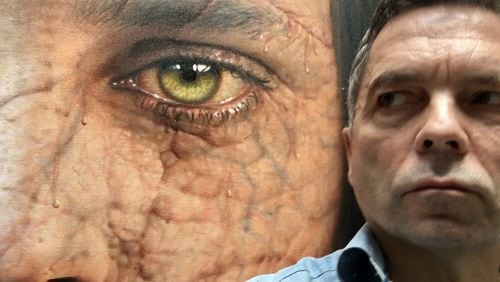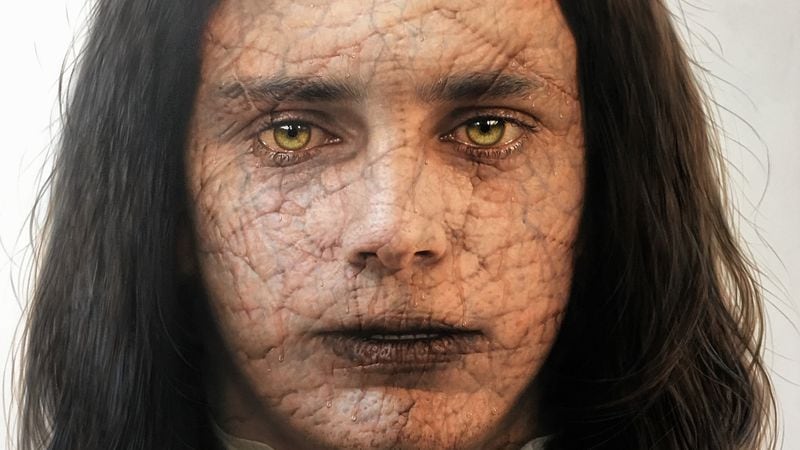How would you like to meet the notorious Frankenstein’s monster?
You have that chance.
I know what you’re thinking. Hollywood, fearful of a fresh idea and always up for action-filled, special-effects-riddled remakes, must be redoing the 1931 Boris Karloff flick.
Where are they filming it, you wonder. Who's playing the monster, and can I corner him in a restaurant for a selfie? Is it going to mess up my commute when they block off the streets? Will it be out by Christmas?
Hold your horror-movie horses for a second. We’re talking about something totally un-Hollywood here. But better. And smarter. And free for you.
But it takes a bit of explanation, which starts with the intersection of Emory University and one of Atlanta’s most interesting people. They’ve gotten together as part of the 200-year anniversary of “Frankenstein,” the remarkably timeless novel by Mary Shelley.
The novel’s bicentennial is part of a campus-wide celebration at Emory, and the effort reaches deep into the story’s themes, many of which get lost in the portrayal of Frankenstein that dominates popular culture.
Let’s start there with some things worth knowing.
First, the “creature” is not Frankenstein. The guy who created him has that name.
In fact, the creature has no name in the novel. More about that later.
Shelley’s story is nuanced and stands the test of time, raising issues that remain relevant today.
Among those issues: technology’s impact on life, artificial intelligence, cloning, and scientific experimentation.
As you may recall, Victory Frankenstein believes he’s discovered the secret of life and pieces together a human-like being with spare body parts. It’s a well-meaning effort that goes terribly wrong.
Now about that interesting person. Emory has named artist Ross Rossin as its Donna and Marvin Schwartz artist-in-residence for this academic year.
Rossin is one of the world’s leading portrait painters.
He is from Bulgaria and has lived in Atlanta for 17 years. Four of his paintings, of Andrew Young, Hank Aaron, Morgan Freeman and Maya Angelou, hang in the National Portrait Gallery in Washington, D.C. The U.S. Postal Service used his Angelou portrait on a stamp it issued in 2015. He’s painted Jimmy Carter and Gandhi, and the list goes on. If you’re an important person and your portrait needs to be painted, Rossin is at the top of the list of artists you’d commission.
His residence coincides with the Frankenstein commemoration at Emory. He decided, as part of his gig, to paint a portrait of Frankenstein’s monster.
But in case you’re concerned that he’s sullied his reputation by employing gobs of green paint and fussing over the details of the knobs on the neck, no worries.
He’s created a portrait that you won’t be able to stop looking at, or thinking about. Which is exactly what he and Emory want.
At the core of Rossin’s time at Emory is his participation in the school’s Ethics and the Arts program, which is part of its Center for Ethics.
The goal is to use art to explore ethical issues.
Credit: Ross Rossin
Credit: Ross Rossin
"The portrait forces us to ask questions that are relevant and explore current ethical issues," said Carlton Mackey, director of Emory's ethics and the arts program.
Rossin found those questions compelling.
“Why are we still fascinated 200 years later with this creature?” he asked me in an interview. “There must be something more to it.”
Rossin said he became intrigued and inspired by the idea of portraying the creature as Shelley described him.
“She gave you something to think about 200 years later,” he said.
Rossin believes Shelley was a genius, and noted that she began the novel when she was just 18. He also sees brilliance in her decision to never give the creature a name.
“Then any name might work,” he said, and the story can be viewed from social, cultural, ethical and psychological perspectives.
His goal included getting those who view his portrait to experience those perspectives: a “thought-provoking conversation around what makes Frankenstein Frankenstein. And what can make us that way.”
Rossin’s monster is young, in his view close to the age of Shelley herself.
“He should have been a good human,” he said.
From a distance, Rossin’s figure isn’t unattractive, perhaps even handsome. But as you get closer, ugliness emerges.
“I knew he should look attractive from a distance,” he said. “Only when you get close does he become repulsive.”
That is Rossin’s metaphor for many human creations that also start out with the best intentions before going wrong.
An example he offers: communism, a powerful comparison for a man with his eastern European heritage.
As a philosophy, he said, communism was supposed to help people and offer economic security to the masses. Instead, it turned into an ugly and oppressive system.
Rossin also points out that in the novel the monster seeks acceptance and love from people, who are terrified of the way he looks. Rejection and hatred ultimately lead to the monster to commit evil acts.
The artist hopes his portrait keeps Shelley’s work relevant and accessible to society.
"I still think Mary Shelley's novel deserves a more philosophical reading," he said. "The creature wants love and acceptance – like all of us. There's some goodness in everybody."
See Frankenstein’s unveiling
What: Renowned portrait artist Ross Rossin's portrait of Frankenstein's monster, the character from Mary Shelley's novel.
When: 7 p.m. Sept. 19
Where: Emory University's Schwartz Center for the Performing Arts.
Cost: The event is free, but guests must register in advance at engage.emory.edu/Frankenstein or call (404) 727-5048.
About the Author








